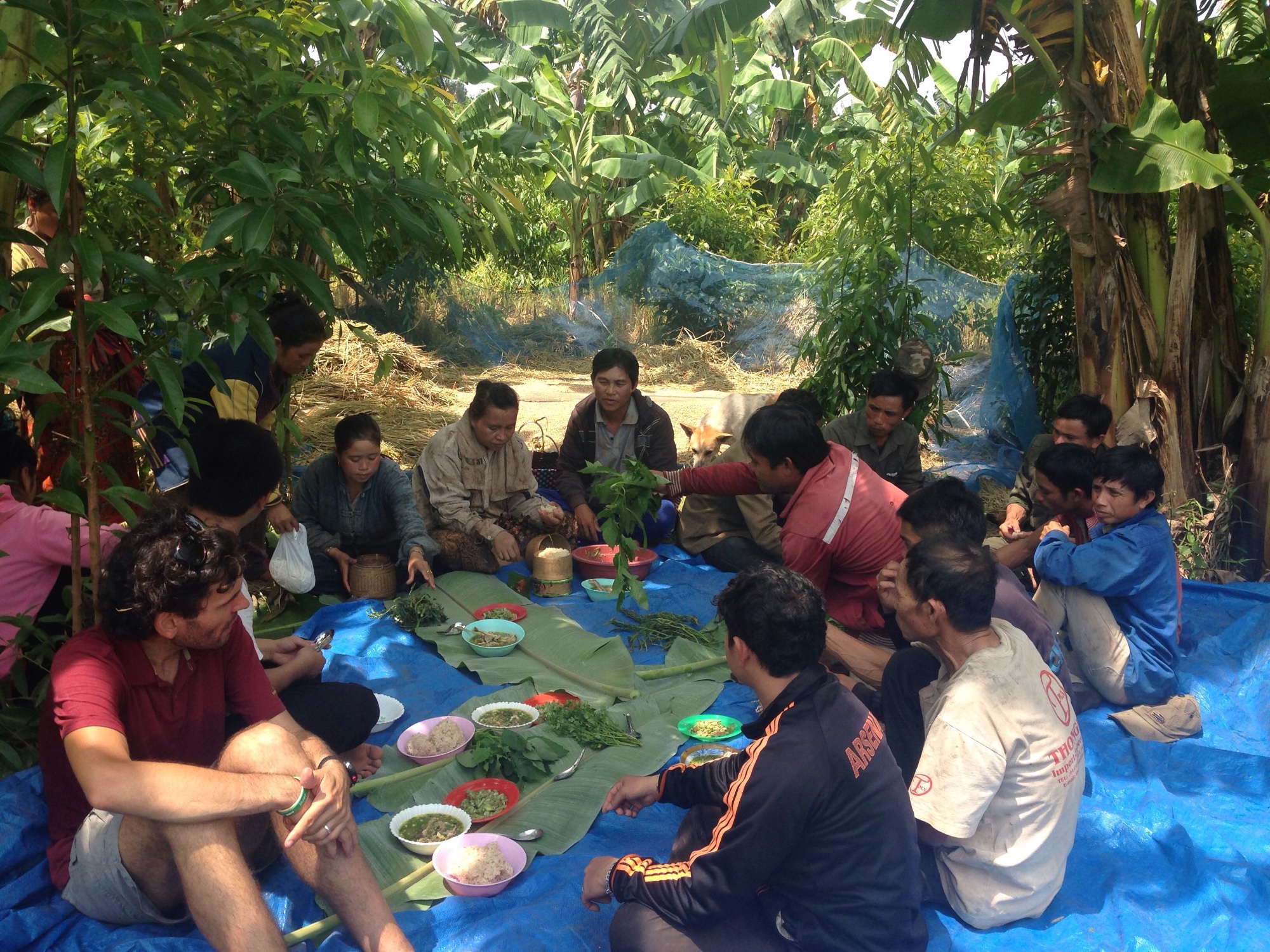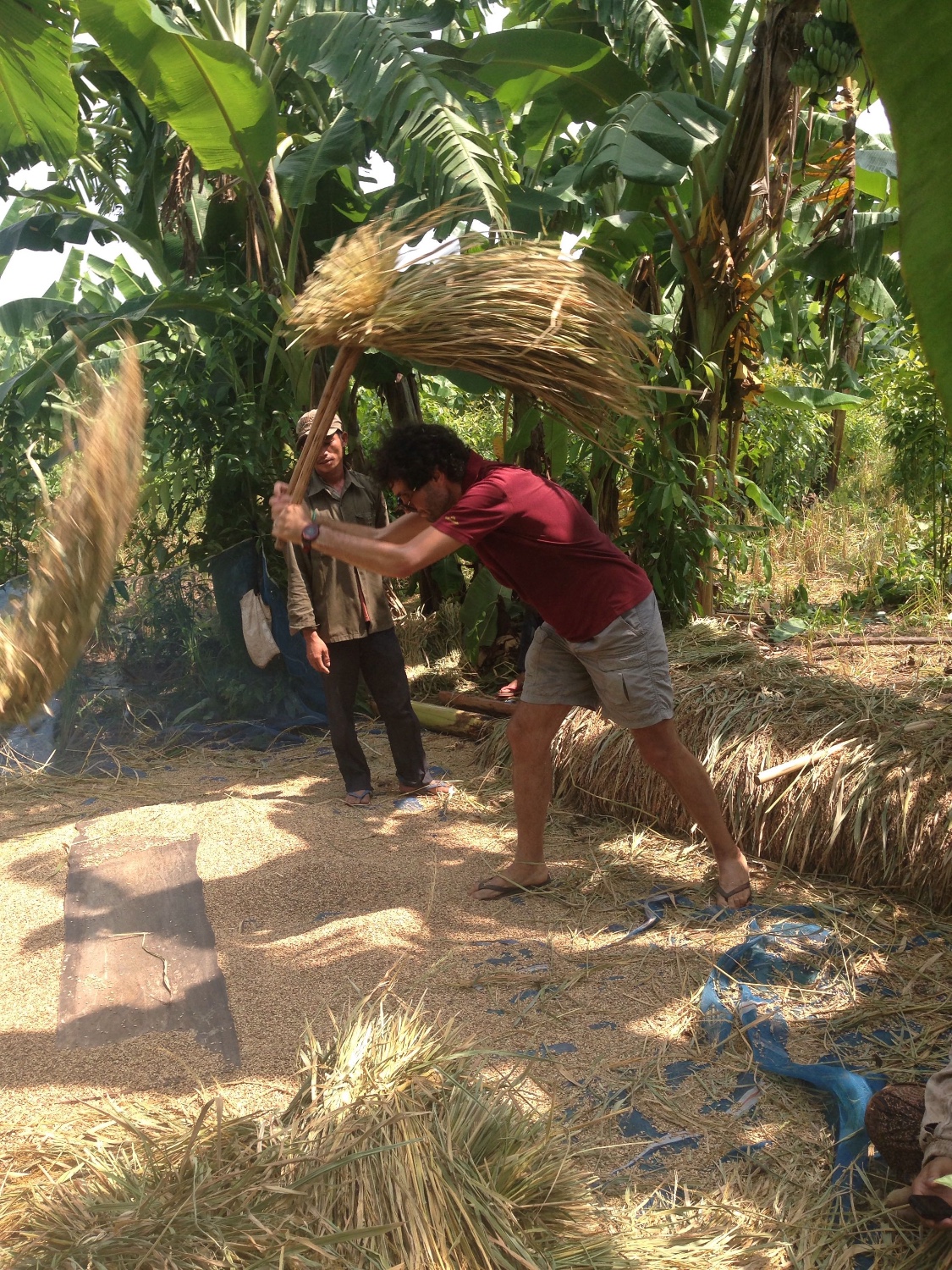One step at a time – lessons from a PhD student
It takes 15 seconds to read this first paragraph. Fifteen seconds to get an idea of what I am doing. If the idea interests you, you may stay longer. I’m doing a PhD at the Fenner School at ANU in collaboration with the ACIAR project, “Improving policies for forest plantations to balance smallholder, industry and environmental needs in Lao PDR and Vietnam”. I’m evaluating how the establishment of tree plantations affects the livelihoods of rural households in Laos. You still there?
Anyway, in December last year, fueled with enthusiasm from receiving my ethics approval and my supervisors’ green light to go ‘into the field’, I was determined to get right into the ‘data collection’. Yes, I was a man with a plan, a plan saved as ‘fieldworkplan.xlsx’ to be precise. Eight months into my fieldwork plan, the most realistic version of my calendar read ‘fieldwork plan (3) – updated version (2) saved after VCA visit adjustment (autosave).xlsx’. Lesson 1: one step at a time and come up with a good document naming system.

Alex enjoy lunch during some of his field work
Like in any other country in the region and beyond, it is virtually impossible for foreigners to conduct independent research in Laos, unless the researcher has a desire to reenact the latest season of ‘Homeland’. In my case, I decided to take the ‘safe’ way and seek central authority permission. When I finally managed to get the right stamps on my permission letters (six months later), my own initial proposal was not relevant anymore as, during my waiting time, local authorities concluded that only two companies could establish tree plantations as usual from then onwards. Lesson 2: be flexible and adaptive (aka delete previous plan versions). Ironically, in that period, I also got response to my early attempts to access the field through the companies I am ‘investigating’. The message was short and clear: “Dear Alexander, I am sorry for the late response. Attached is list of two farmers and two villages. Below is the telephone number of our staff who you can contact if you want to visit”. Lesson 3: be patient but persistent.
With three interesting case studies identified, there was no reason to ‘waste’ more time in the city. Ethics-certified: check. Plan: check. Red-stamped letters: check. Multi-pocket field trousers: check. But, damn! random-selection fell on sites without cafés and multigrain bread bakeries. My proposal was influenced by other researchers who had spent several consecutive months in one village or numerous long trips over an eight-year period. Advise from my panel of advisors was that six weeks per village “should be enough” to understand village livelihoods and to develop a ‘relationship’ with research participants. But random selection was giving me Lesson 4: location influences methodology. In other words, (Lesson 5) buy a reliable fieldwork proof coffee making device and take enough coffee for extended discussions with everyone in the village! (click here for more advice on getting good coffee while in the field).

Alex in action during his field work


